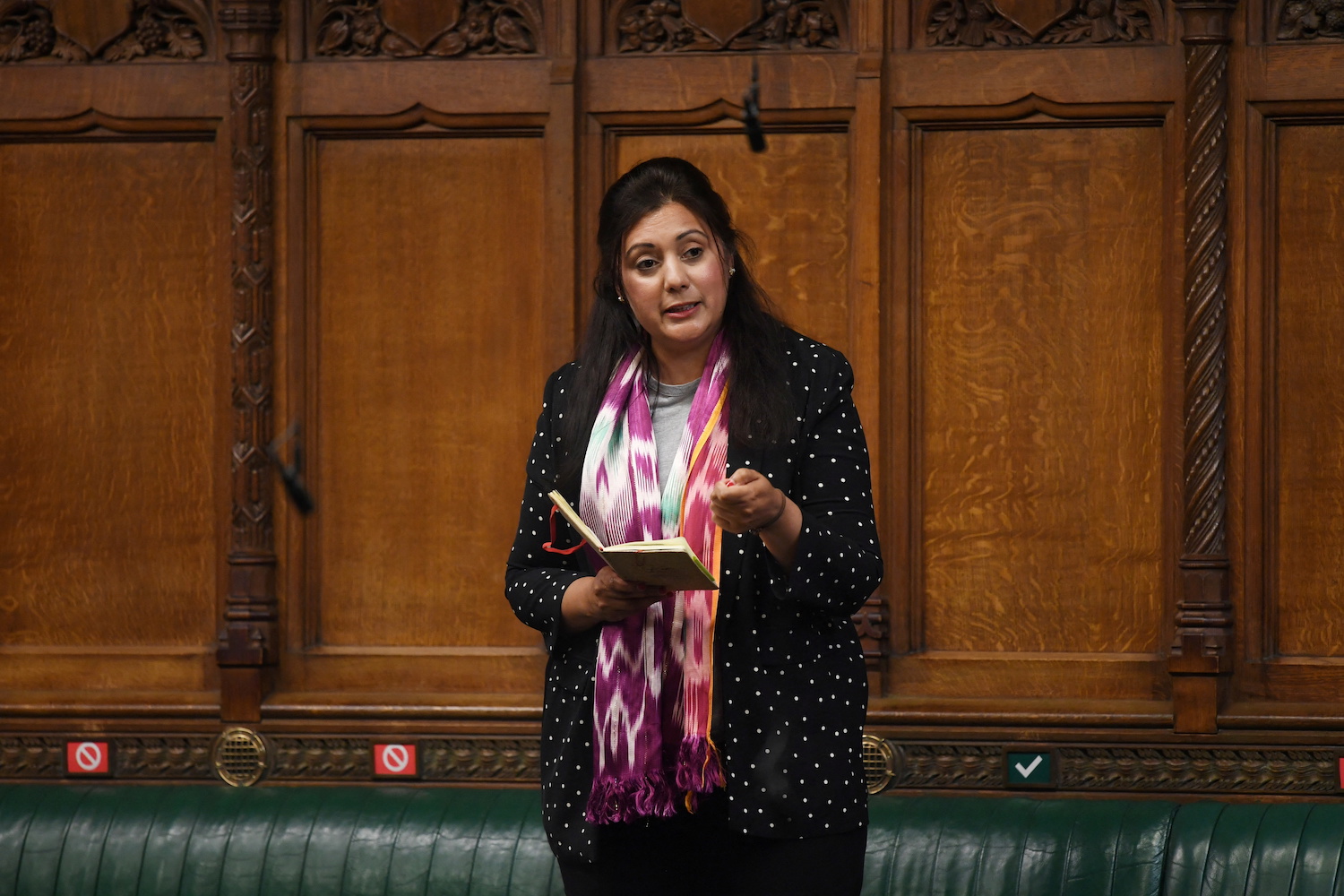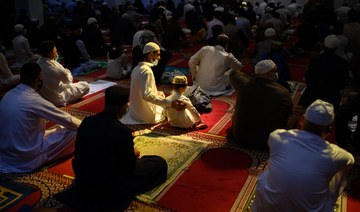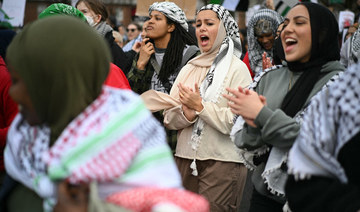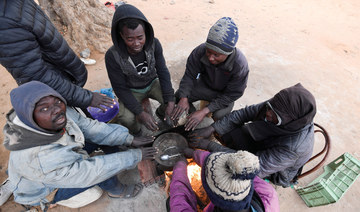LONDON: A UK Muslim leader said on Tuesday that the findings of a survey on Islamophobia had highlighted “the pervasive nature of the problem” in Britain.
The study, conducted by researchers at the University of Birmingham, revealed that Islamophobia had passed the so-called dinner table test in being considered suitable for polite conversation and socially acceptable.
Titled, “The Dinner Table Prejudice: Islamophobia in Contemporary Britain,” the survey found that Muslims were the UK’s second least-liked group after gypsy and Irish travelers, with 25.9 percent of the British public feeling negative toward Muslims, and 9.9 percent very negative.
Speaking at the report’s launch, Zara Mohammed, the first female secretary-general of the Muslim Council of Britain, said Islamophobia was definitely real, contrary to what some people thought, and that it impacted on all aspects of society.
“I think what’s really great about this report and its contribution to the body of evidence is that it shows us not just the pervasive nature of the problem but also that Muslims are some of the least-liked people in the population.
“In my one year so far as the secretary-general of the MCB, what we have seen is unfortunately a very changing landscape for British Muslims and one that is becoming increasingly hostile.
“This is the reality of how Muslims are perceived in everyday Britain, and that is in 2022 as well,” she added.
More than one-in-four people quizzed for the survey, and nearly half of Conservative Party supporters and those who voted to leave the EU, held conspiratorial views that “no-go areas” in the UK existed where Shariah law ruled.
And 26.5 percent of those questioned agreed with the statement that, “there are areas in Britain that operate under Shariah law where non-Muslims are not able to enter,” the study said. Among Conservative Party voters and those who elected to leave the EU, the figure increased to 43.4 percent.
A further 36.3 percent of Brits said they thought that “Islam threatens the British way of life,” and 18.1 percent supported, and 9.5 percent strongly supported, the idea of banning all Muslim migration to the UK.
“British people acknowledge their ignorance of most non-Christian religions, with a majority stating they are ‘not sure’ how Jewish (50.8 percent) and Sikh (62.7 percent) scriptures are taught.
“In the case of Islam, however, people feel more confident making a judgement, with only 40.7 percent being unsure. This is despite the fact that people are much more likely to make the incorrect assumption that Islam is ‘totally’ literalistic. Prejudice toward Islam is not simply ignorance, then, but miseducation and misrecognition,” the study report added.
Mohammed pointed out that Islamophobia had a very real knock-on impact on the everyday lives of Muslims, and she welcomed the academic evidence contained in reports such as the latest one written by Stephen Jones and Amy Unsworth.
She noted that it was important to document the problem and share data with policy makers when asking for change.
“In some ways it empowers Muslim communities to say, ‘don’t think it’s in your heads, actually something needs to be done.’
“The government’s own evidence on hate crime found that 40 percent of all those facing hate crime were Muslims. This is very much a real problem and I’m hoping that on the back of the work that Prof. Jones has done, we will all be able to benefit from it and use it in our campaigns, activism, and conversations.
“Whilst Islamophobia has certainly passed the dinner table test, it’s time for us to be able to move forward and make a real change, and the MCB remains committed to doing that,” Mohammed said.

MP Nusrat Ghani speaks during a session in Parliament in London, Britain. (File/Reuters)
The survey launch has coincided with news headlines about British Muslim Conservative MP Nusrat Ghani’s claims that her faith was given as a reason for her sacking as a government minister in 2020.
She said she was told that her “Muslimness was raised as an issue” at a meeting and that her “Muslim woman minister status was making colleagues feel uncomfortable.”
“It was like being punched in the stomach. I felt humiliated and powerless,” she added.
British Prime Minister Boris Johnson has ordered a Cabinet Office inquiry into the claims.
On Ghani’s allegations, Mohammed said they “highlighted just how systemic and institutional the problem of Islamophobia is. It hits hard, and it hits deep.”
She added that Islamophobia, “isn’t just in our heads, and just over this weekend we have seen at the heart of politics how this also plays out.
“What is actually being done? What is the approach of decision makers to tackling the problem, if any?”
She said the MCB had been working to push for the adoption of a definition of Islamophobia developed by the All-Party Parliamentary Group on British Muslims.
According to the APPG definition, Islamophobia was rooted in racism and was a type of racism that targeted expressions of Muslimness or perceived Muslimness. The definition was widely endorsed throughout Muslim communities, political parties, and civil society.
However, the ruling Conservative Party rejected the APPG definition in 2019 and said it needed “more consideration.”
The late James Brokenshire, Britain’s communities secretary at the time, told the House of Commons that the APPG definition was not in line with the Equality Act 2010, and that two advisers would be appointed to come up with a definition that was.
However, an imam appointed by ministers as a key adviser on Islamophobia, said on Monday he had been ignored by No. 10 and Michael Gove, the UK’s secretary of state for housing, communities, and local government.
Imam Qari Asim, who was asked to help draw up a definition of Islamophobia, told The Times that he had not received replies to emails and letters that he sent to the government over more than two years since he was appointed.


























